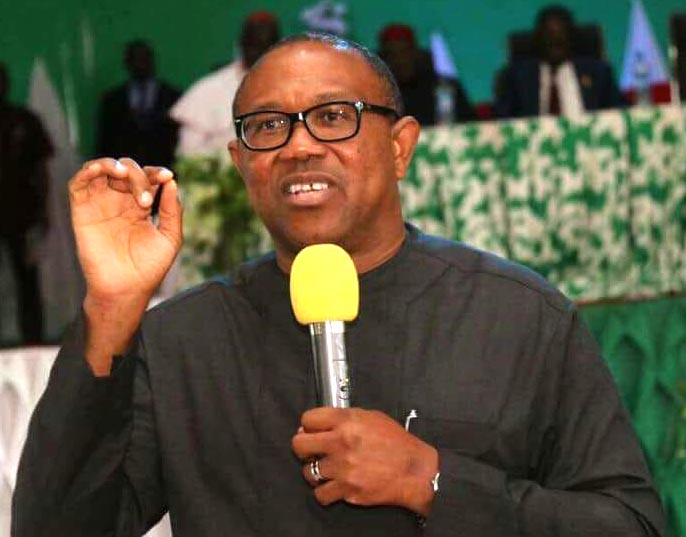Obi’s 2023 presidential aspiration and the Nigerian factor
When former Peoples Democratic Party (PDP) presidential aspirant and former governor of Anambra State, Peter Obi, joined the Labour Party, where he went on to clinch the presidential ticket after other aspirants, including renowned economist, Professor Pat Utomi stepped down for him, little did cynics reckon with him. For all they cared, he was gone […]

Peter Obi
When former Peoples Democratic Party (PDP) presidential aspirant and former governor of Anambra State, Peter Obi, joined the Labour Party, where he went on to clinch the presidential ticket after other aspirants, including renowned economist, Professor Pat Utomi stepped down for him, little did cynics reckon with him. For all they cared, he was gone politically. “Why didn’t he stay behind and pair with former Vice President Atiku Abubakar with whom they contested and performed creditably well in the 2019 election?” People queried.
Despite the national chairman of the Labour Party, Julius Abure, and publicity secretary, Comrade Abayomi Oluwafemi Arabendi, recently revealed that there are no factions in the political party and that the party saw an opportunity missed by the PDP in Obi and decided to grab it because he is the personification of honesty, competence, and capacity, there are more hard questions to consider.
- PDP, APC are the problem of Nigeria – SDP Presidential Candidate
- Obasanjo to youths: Don’t leave Nigeria to those messing it up
The major hurdles against Obi’s aspiration revolve around the ‘Nigerian factor.’ There is the perception that big political spenders always carry the day. What is the structure Obi intends to use for his ambition as the Labour Party since it is not a major force in the political environment? Specifically, does Obi stand a chance against tested election veterans like PDP’s Atiku Abubakar and APC’s Asiwaju Bola Tinubu? How popular is Obi across the country, especially in the North? Can he survive the Nigerian factor in elections? Question marks all over.
Perhaps realizing the odds stacked against him, Obi’s supporters are pointing to his decision to throw his hat in the ring as a selfless, heroic, and important decision for the Nigerian masses; that he is leading an almost silent revolution on behalf of the talakawas, the working masses, the students, the youths, and the women. Obi has spoken to Nigerians on the imperative to take back their country from the ravenous wolves that hold it by the jugular. These cliques have mismanaged the people’s aspiration for quality education, healthcare, electricity supply, high-paying jobs, standard roads, security, and social welfare due to their elitist self-aggrandizement and cronyism. The weapon for their state capture is surplus ill-gotten wealth. The process they promote is the dollarization and monetization of the electoral process, which they quickly seek to recoup after elections by quickly positioning themselves and their followers to leech onto public offices, contracts, and perquisites, all to the detriment of the people and the image of the fatherland.
Many believe that Obi’s quest is one last push to save Nigeria for future generations. Obi says he is not desperate for power but desperate to end the country’s woes. This is why during his consultations with delegates in Sokoto, Kano, Anambra, Akwa Ibom, etc he takes permission to visit the schools where his pre-political financial endowments have been channeled to see how his widow’s mite is helping to shape the lives of the young people. Obi says one of the governors asked him why he is going there, and he said it’s his developmental philosophy. He says he wants services to work better, which is the reason he refuses to use VIP lounges at airports to force better services to the masses.
Only time will tell if Nigerians are ready for the message.
Uduak Akpan E. writes from Karu, Abuja
